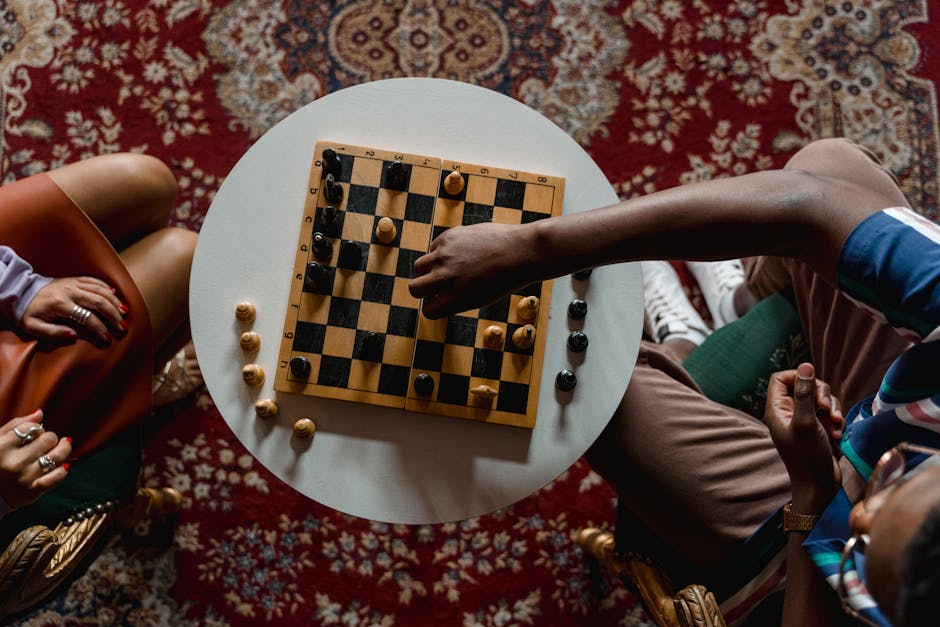
In the electrifying realm of competitive gaming, strategic insight can often be the defining factor between victory and defeat. The VCT 2025: Game Changers Brazil Final Stage showcased an array of impressive strategies that not only captivated audiences but also set new benchmarks for professional gamers. This guide delves into the top strategies observed during the event, offering valuable insights for those looking to enhance their competitive edge in the gaming world.
Key Strategies from VCT 2025: Game Changers Brazil
The VCT 2025: Game Changers Brazil Final Stage was a thrilling exhibition of skill, teamwork, and tactical prowess. The strategies employed by the top teams were nothing short of revolutionary, offering new paradigms in gameplay that others may seek to adopt. Here, we examine some of the standout strategies that emerged from this prestigious tournament.
1. Adaptive Playstyles
One of the most prevalent strategies observed during the finals was the use of highly adaptive playstyles. Teams demonstrated the ability to swiftly transition between aggressive and defensive stances, depending on the evolving dynamics of each match. This flexibility allowed teams to maintain unpredictability, keeping their opponents on their toes.
- Agility in Team Roles: Fluid team roles meant players were not confined to traditional roles, allowing for quick adjustments based on the opposing team’s tactics.
- Environmental Awareness: Utilizing map features creatively to shift strategies mid-game proved to be a game-changer.
2. Precision in Execution
The emphasis on precision was another key element of success. Teams displayed exceptional coordination and execution, ensuring that every move counted. This was particularly evident in their utility usage and team engagements.
- Utility Mastery: Teams exhibited mastery in deploying utilities at critical moments, such as using smoke to obscure sightlines or flashbangs to disorient opponents.
- Synchronization: Perfectly timed attacks and retreats highlighted impeccable team communication and practice.
3. Analysis and Counter-strategy Implementation
Winning teams excelled at analyzing opponents’ strategies and implementing effective countermeasures. This involved real-time observation and quick decision-making to exploit weaknesses in the enemy’s setup.
- Data-Driven Decisions: Utilizing match data to anticipate opponent moves and adjust tactics accordingly.
- Counter-play Tactics: Employing specific strategies designed to neutralize the strengths of opponent teams, such as targeting key players.
4. Psychological Tactics
Psychology played a significant role in the competition, with teams leveraging psychological tactics to gain an upper hand. This included mind games and creating pressure situations that forced opponents into making mistakes.
- Tempo Manipulation: Changing the pace of the game unexpectedly to unsettle opponents and disrupt their rhythm.
- Feigned Strategies: Bluffing maneuvers to mislead opponents about their true intentions.
Implementing These Strategies in Your Own Play
Integrating these strategies into your own gameplay requires practice and a deep understanding of your team’s dynamics. Start by focusing on developing adaptive playstyles and improving communication within your team. Use game replays to analyze and refine your strategies continuously. By applying these proven tactics, aspiring competitive gamers can enhance their overall performance and approach each match with a strategic advantage.
FAQ
Q1: What makes adaptive playstyles so effective?
Adaptive playstyles are effective because they allow teams to remain flexible and responsive to changing game conditions. This unpredictability makes it difficult for opponents to anticipate moves, providing a strategic edge.
Q2: How can a team improve their precision in execution?
Improving precision involves consistent practice and fostering strong team communication. Players should focus on mastering their roles and learning to coordinate utilities and actions for maximum impact.
Q3: What are some techniques for implementing counter-strategies?
Counter-strategies can be developed by studying opponent playstyles and identifying patterns. Teams can then practice specific scenarios to exploit weaknesses and neutralize threats.
Q4: Why are psychological tactics important in competitive gaming?
Psychological tactics can influence an opponent’s mental state, leading to mistakes and strategic openings. Effective use of mind games and pressure situations can tilt the odds in your favor.
Q5: Can these strategies be used in games other than Valorant?
Yes, while these strategies were highlighted in the context of Valorant, the core principles of adaptability, precision, analysis, and psychology can be applied across various competitive games.
Conclusion
The VCT 2025: Game Changers Brazil Final Stage was a testament to the evolving nature of competitive gaming strategies. By studying the approaches adopted by top teams, aspiring gamers can gain invaluable insights into what it takes to succeed at the highest levels. As the competitive landscape continues to advance, staying informed and adaptive will be crucial for anyone looking to make their mark in the gaming world.
Embrace these strategies, refine your skills, and prepare to elevate your game to new heights.


